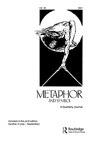(二)疼痛患者的人性化隐喻及其与护患关系感知质量的关系
IF 3.3
3区 文学
0 LANGUAGE & LINGUISTICS
引用次数: 0
摘要
摘要隐喻是健康相关语境中交际和意义形成过程的核心。然而,医疗保健专业人员用来理解患者及其关系的隐喻如何与他们临床遭遇的感知价值相关联,却没有得到充分的探索。本研究借鉴ABC去人性化模型,调查了护士在理解疼痛患者时使用的人性化或非人性化隐喻与他们如何感知与患者的关系之间的关系。50名女护士对疼痛护理中的简单/困难病例进行了个别叙述性的情景访谈。内容分析对隐喻进行了分类,确定了八类隐喻,反映了不同类型的患者(去)人性化。多重对应分析提取了隐喻模式及其与患者-护士关系感知特征的关联。研究表明,这些模式与患者性别或社会经济地位(SES)无关,但与临床关系的感知效价有关。通过揭示患者隐喻如何引导护士的感知,并可能调节临床接触中的互动,这些发现可能有助于提高疼痛护理的质量。本文章由计算机程序翻译,如有差异,请以英文原文为准。
(De)humanizing Metaphors of People in Pain and Their Association with the Perceived Quality of nurse-patient Relationship
ABSTRACT Metaphors are central in communication and sense-making processes in health-related contexts. Yet how the metaphors used by health-care-professionals to make sense of their patients and their relations to them are associated to the perceived valence of their clinical encounters is underexplored. Drawing-upon the ABC Model of Dehumanization, this study investigated how the humanizing or dehumanizing metaphors nurses’ use for making sense of their pain patients are associated with how they perceived their relationships with them. Fifty female nurses undertook individual narrative-episodic interviews about easy/difficult cases in pain care. A content analysis classified the metaphors, identifying eight classes reflecting different types of patients (de)humanization. A multiple correspondence analysis extracted patterns of metaphors and their association with the perceived characteristics of the patient-nurse relationship. It showed how these patterns were not associated with patient sex or socioeconomic status (SES) but were related to the perceived valence of the clinical relationship. By uncovering how patient metaphors guide nurses’ sense-making and potentially modulate interactions in clinical encounters, these findings may contribute to improve quality of pain care.
求助全文
通过发布文献求助,成功后即可免费获取论文全文。
去求助
来源期刊

Metaphor and Symbol
Multiple-
CiteScore
2.90
自引率
0.00%
发文量
23
期刊介绍:
Metaphor and Symbol: A Quarterly Journal is an innovative, multidisciplinary journal dedicated to the study of metaphor and other figurative devices in language (e.g., metonymy, irony) and other expressive forms (e.g., gesture and bodily actions, artworks, music, multimodal media). The journal is interested in original, empirical, and theoretical research that incorporates psychological experimental studies, linguistic and corpus linguistic studies, cross-cultural/linguistic comparisons, computational modeling, philosophical analyzes, and literary/artistic interpretations. A common theme connecting published work in the journal is the examination of the interface of figurative language and expression with cognitive, bodily, and cultural experience; hence, the journal''s international editorial board is composed of scholars and experts in the fields of psychology, linguistics, philosophy, computer science, literature, and media studies.
 求助内容:
求助内容: 应助结果提醒方式:
应助结果提醒方式:


